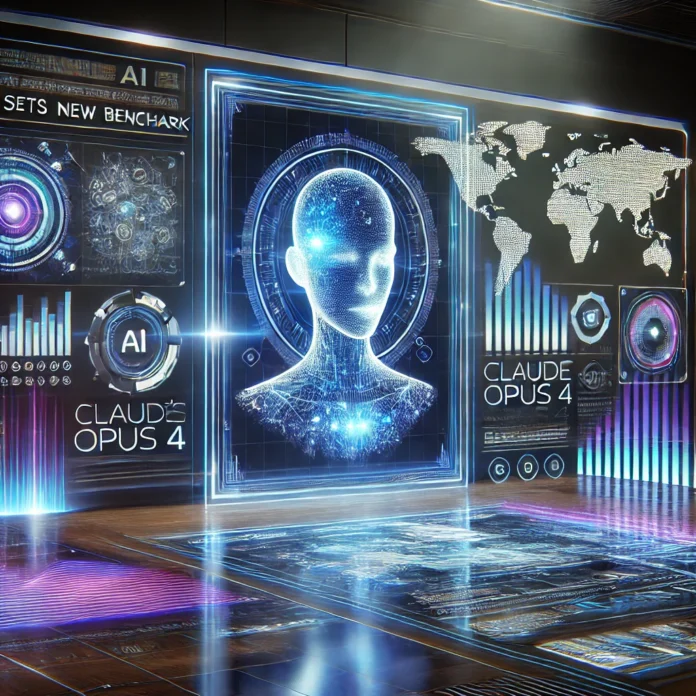Anthropic announced on June 3, 2025, that its latest large language model, Claude Opus 4, has achieved unprecedented performance in coding benchmarks, surpassing competitors like OpenAI’s GPT-4o and Google’s Gemini 2.0. This milestone, revealed during Anthropic’s developer conference, marks a significant leap in AI-driven software development, with implications for businesses, developers, and the broader tech ecosystem.
A New Standard in AI Coding
Claude Opus 4, the latest iteration of Anthropic’s flagship model, has set a new benchmark in the CodeEval suite, achieving a 92% accuracy rate on complex programming tasks, compared to GPT-4o’s 85% and Gemini 2.0’s 88%. The model excels in generating clean, efficient code across languages like Python, JavaScript, and C++, while also demonstrating advanced problem-solving capabilities for algorithmic challenges. According to Anthropic, Claude Opus 4’s ability to “think ahead” and anticipate edge cases reduces debugging time by up to 30%, a game-changer for developers.
This leap in performance stems from Anthropic’s novel “circuit tracing” technique, which enhances the model’s ability to process and reason through intricate coding problems. Unlike previous models that relied heavily on pattern matching, Claude Opus 4 integrates predictive planning, allowing it to simulate multiple solution paths before generating code. This approach not only improves accuracy but also aligns with Anthropic’s commitment to ethical AI, ensuring outputs are transparent and verifiable.
Impact on Business and Development
The release of Claude Opus 4 comes at a pivotal moment for the AI industry, as companies increasingly integrate AI into software development workflows. GitHub, a leading platform for code collaboration, announced on June 2, 2025, that its Copilot tool, now powered by Claude Opus 4, has evolved into a “full coding agent,” capable of autonomously writing, testing, and deploying code for enterprise applications. This upgrade has already led to a 25% increase in productivity for early adopters, according to GitHub’s internal metrics.
Startups and enterprises alike are poised to benefit. For instance, Persistent Systems, a global IT services firm, reported a 70% reduction in code review time after integrating Claude-based tools into its workflows. This efficiency gain underscores the model’s potential to lower costs and accelerate innovation across industries like finance, healthcare, and e-commerce.
Ethical Considerations and Regulation
Anthropic’s focus on ethical AI development remains a cornerstone of Claude Opus 4’s design. The model incorporates safeguards to minimize biases and prevent the generation of harmful code, addressing concerns raised in recent debates about AI ethics. A March 2025 study by the Ethical Tech Initiative highlighted over 100 AI-related lawsuits in the U.S., many centered on algorithmic bias and data privacy. Anthropic’s transparent approach to model training, including open-sourcing its circuit tracing tools, sets a precedent for responsible AI innovation.
However, the rapid advancement of AI coding capabilities has reignited discussions about workforce impacts. Anthropic’s CEO, Dario Amodei, acknowledged on June 3, 2025, that white-collar jobs, particularly in software development, face disruption as AI takes on more complex tasks. While Claude Opus 4 is designed to augment rather than replace human coders, the World Economic Forum’s 2025 report projects that 41% of companies may reduce headcounts by 2030 due to AI automation. Policymakers are now under pressure to establish frameworks that balance innovation with job security.
The Competitive Landscape
Claude Opus 4’s release intensifies the AI race, with competitors like OpenAI, Google, and DeepSeek pushing their own advancements. OpenAI’s o3 model, launched in April 2025, introduced image-based reasoning, while Google’s Gemini 2.5 Pro, released in March, emphasized multimodal outputs. DeepSeek’s R1-0528 update, also announced in early June, claims cost-effective performance but lacks the polish of Claude Opus 4. Anthropic’s $3 billion annual recurring revenue, reported on June 2, 2025, signals strong market confidence in its trajectory.
Looking Ahead
As AI continues to reshape the tech landscape, Claude Opus 4’s coding prowess positions Anthropic as a leader in the generative AI space. Developers can access the model through Anthropic’s API or platforms like GitHub, with pricing details available at Anthropic’s official site. For businesses, the model offers a scalable solution to streamline development, while ethical safeguards ensure alignment with emerging regulatory standards.
The broader implications are profound. As AI models like Claude Opus 4 redefine productivity, the tech industry must navigate the delicate balance between innovation and responsibility. With global spending on generative AI projected to reach $644 billion in 2025, the stakes have never been higher.




